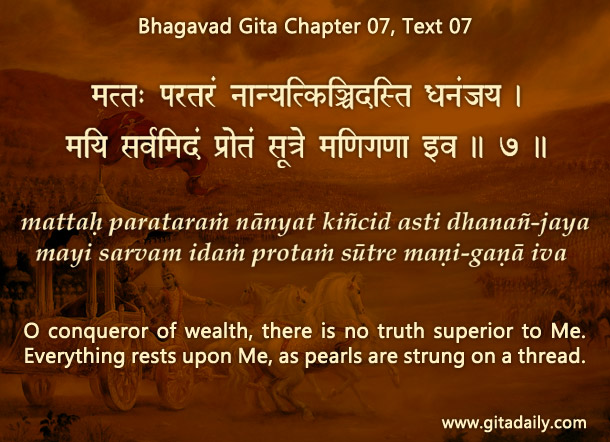Many Gita commentators treat Krishna as a pointer to an amorphous non-personal Absolute Truth. They consider that the less intelligent need a form to stabilize their meditation till it becomes strong enough to focus on the impersonal light that the form is meant to point to. That the Gita (07.24) speaks exactly the opposite, deeming as unintelligent those who consider the personal a temporary manifestation of the impersonal absolute, doesn’t seem to matter to them.
Some such commentators think of themselves as being especially charitably disposed towards the devout when they grant personality more than provisional existence – they deem that personality is also a feature of the Absolute Truth, which essentially is an infinity of idealized, universalized perfection. That their conception of perfection is stripped of personality, reciprocity and vitality doesn’t seem to matter to them. That the Gita (07.07) speaks the opposite, declaring that there’s no higher truth than Krishna, who is clearly a person speaking it, doesn’t seem to matter to them.
But it should matter to us if we are interested in the Gita’s import and not the intellectual gymnastics of its commentators.
Significantly, the Gita doesn’t need such gymnastics from self-appointed arbiters of its meaning. It declares that personality is not just a pointer to some higher impersonal Absolute Truth. Rather, everything else, including the impersonal manifestation, is a pointer to the personal Absolute Truth, as the Gita (10.41) emphasizes. This subordination of the impersonal to the personal is evident also in the Gita’s declaration (18.54) that those who attain impersonal realization thereafter graduate to personal devotion.
The personal manifestation is thus the pinnacle of the Absolute Truth – and that pinnacle sustains all the other manifestations of the Absolute Truth, including, as the Gita (14.29) indicates, the impersonal.


Leave A Comment